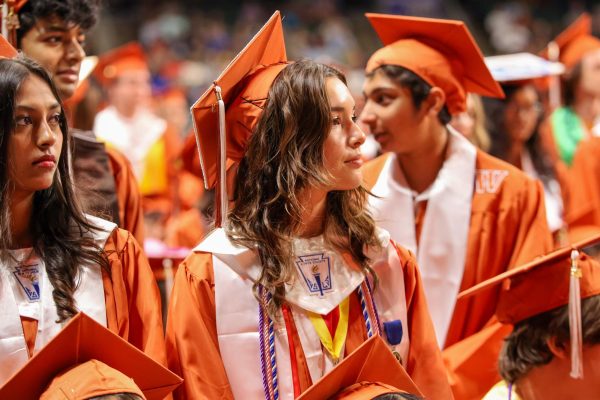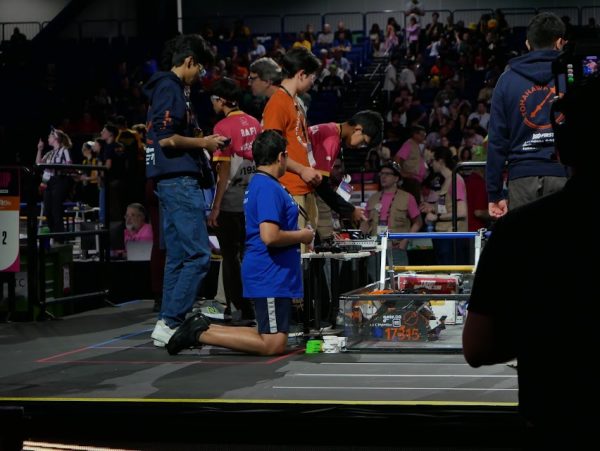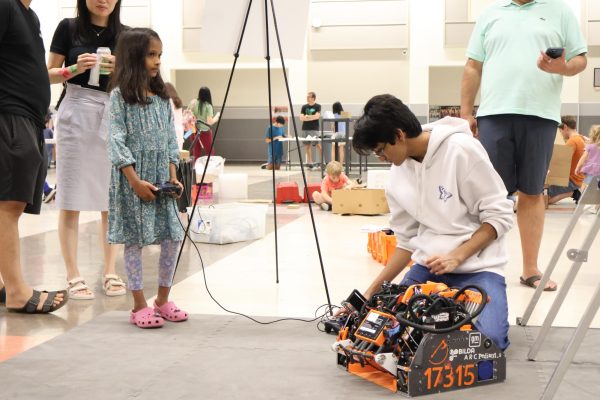AP Statistics Students Perform Lab with “Drunk” Goggles
AP Statistics classes tried out illusional goggles on Monday, March 2. These goggles gave the students a visual misconception of being highly intoxicated, or “drunk”. In each of their chosen groups, students walked across a solid line as if they were getting tested for an infraction. This lab took a real life perspective of how alcohol can affect your vision drastically.
“It’s about how police test whether someone is sober or not from being pulled over,” Byung Jong Amin ‘21 said. “This [lab] is called Walk Intern. Without goggles it’s pretty easy; with them it’s a whole different story.”
From heel to toe, each student walked nine steps while others wrote down infractions or how many times they failed to step correctly. If a student had more than 2 infractions, a hypothetical jail sentence would be the result.
“I think it was interesting,” Grace Ji ‘20 said. I think the overall purpose of this is to kind of tie this in with our lesson with hypothesis testing and being different.”
The groups collected data of each person and compared the infractions between men and women. Following this, the class will perform analysis testing based on the observations.
“My group chose the super special goggles that are even more distorted than the regular ones for some reason,” Emma Galley ‘20 said. “One of our group members fell over, [and] I think I got 20 infractions.”
With this active lab, students were able to experience some of the physical effects from the use of alcohol without putting themselves in real danger. This not only helped progress their unit in hypothesis testing further, but created a real life scenario within it.
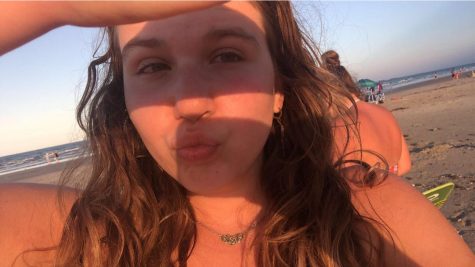
Hey! I am in the class of ‘22 here at Westwood. Outside the press room you can find me hours deep in a book or playing Minecraft. I am the definition...




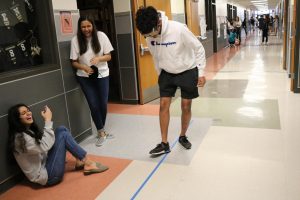
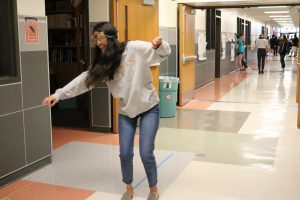
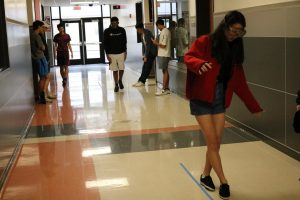
![Westwood students experienced the impacts of class cuts resulting from Round Rock ISD (RRISD)s budget deficit. The recently approved general fund budget could have played a role in returning some of the cut classes. We all hope that [the general fund budget] will bring additional funding and cost savings, potentially help with course and extracurricular operations, and provide deserving teachers with an increase in salary as well as provide better education opportunities for students, Marlene Luo 25 said.](https://westwoodhorizon.com/wp-content/uploads/2024/07/ww-pic-600x479.jpg)

